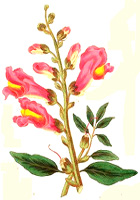“Adon’s father had left the family when Adon was small. But Adon and his mother scraped together their savings for the fare for every trip to hospital, and they kept on coming - for months. The national cancer council, Makna, helped them a little with the travel costs.
 “Adon was a charismatic boy. The nurses loved his sense of humour and cheeky smile. He was patient with his mother, and with us nurses and doctors. Everyone liked him and his mother. There was one time, when Adon was allowed home, he fell off his bicycle, and we told him off when his wounds got infected. His mother begged him not to cycle again and he listened.”
“Adon was a charismatic boy. The nurses loved his sense of humour and cheeky smile. He was patient with his mother, and with us nurses and doctors. Everyone liked him and his mother. There was one time, when Adon was allowed home, he fell off his bicycle, and we told him off when his wounds got infected. His mother begged him not to cycle again and he listened.” My friend said, “One day, we couldn’t find any blood of his type to transfuse him with. Stanley, an Iban-Chinese boy, a little older than Adon, was in the next bed. Stanley offered to let Adon have the blood that Stanley’s own family had donated for Stanley. We were all really moved. Stanley had cancer too, but we cured him in the end.
“Over a few months, after a lot of chemotherapy, it became clear to everyone that Adon’s cancer was getting worse and would never be cured. He asked us how the treatment was going, and we explained things to him and his mother. Adon became weaker and kept having fever. He was a little breathless because of some lung infection that his body couldn’t clear, but he could walk around slowly.
‘I don’t want mom to carry my dead body’
“One day,” the doctor said slowly, “Adon asked for permission to go home. He said he knew he wasn’t getting any better. He thanked us. He told us he knew more treatment wouldn’t help. He tried to persuade his mother to allow him to leave hospital.
 “I asked him why,” the doctor said, “and I was shaken, when he told me, ‘I want to go home while I’m still alive. It’s much easier for my mother to take me home now, instead of trying to carry a dead body. The cemetery is just beside our house in the village. It’ll be better, and less expensive, for my family.’
“I asked him why,” the doctor said, “and I was shaken, when he told me, ‘I want to go home while I’m still alive. It’s much easier for my mother to take me home now, instead of trying to carry a dead body. The cemetery is just beside our house in the village. It’ll be better, and less expensive, for my family.’ “His mother did as he wished, and they went home together for the last time. He became more breathless over the next day, and his mother called us for help. The hospital nurses did their best. We sent an oxygen tank to the small rural clinic near his village, to try to make him more comfortable.
“But the medical assistant at the clinic wasn’t particularly helpful. He didn’t even go to Adon’s house to see him when Adon was dying. And after all that, the oxygen arrived too late anyway - Adon was already dead.
“His mother called us after his funeral to thank us. Can you imagine that?” my friend said. “I’ll never forget Adon, as long as I live,” the doctor finished.
We may live in two separate worlds, but we share a common humanity.
KERUAH USIT is a human rights activist - anak Sarawak, bangsa Malaysia. His ‘The Antidote’ column, which appears in Malaysiakini every Wednesday, is an attempt to allow the voices of marginalised people to be heard all over Malaysia. The writer can be contacted at keruah_usit@yahoo.com.
___________________________________________________________________
I hope that he rest in peace...
Namoamitofu................................











